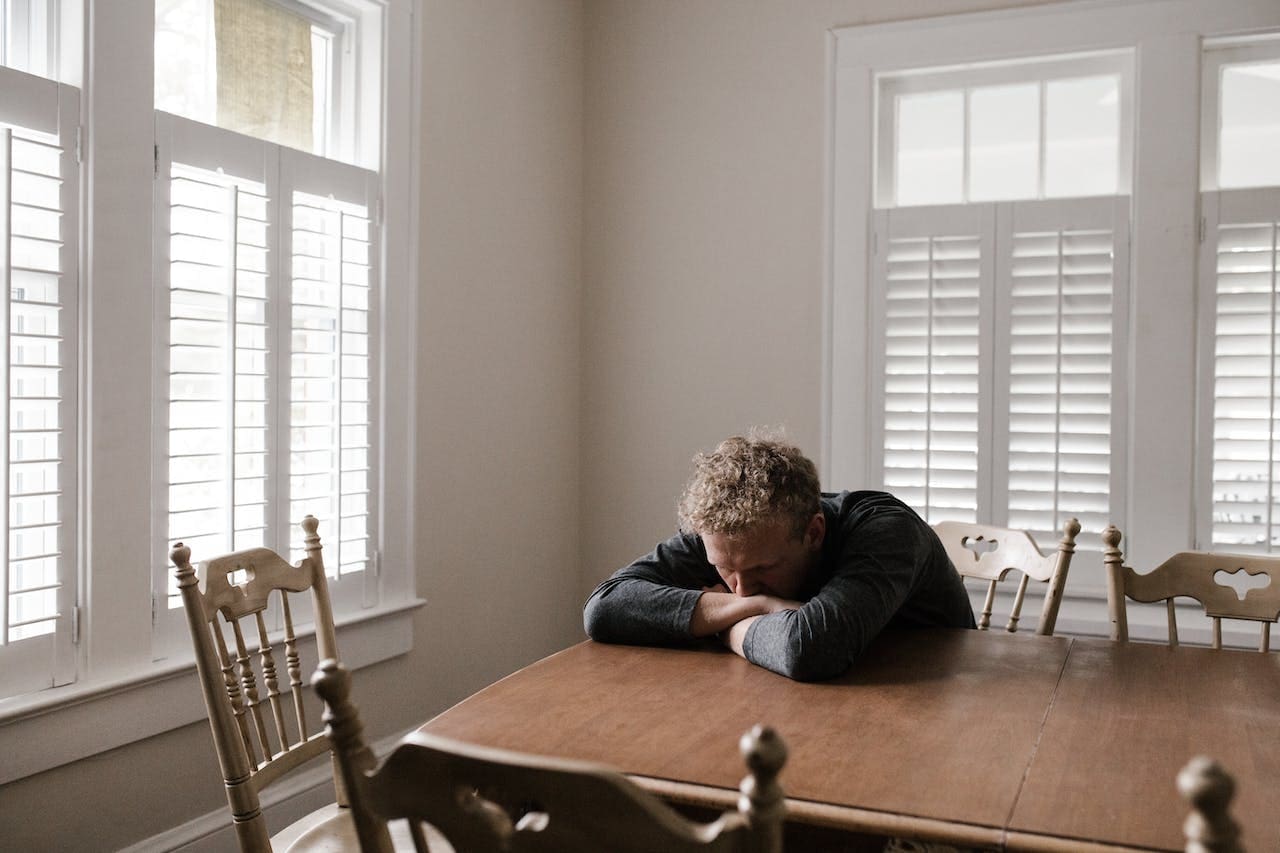Full Disclosure: Clicking on these links could mean a tiny commission for me, at no extra cost to you.
If you have racing thoughts, trouble concentrating on even the most menial tasks, or a persistent feeling of being on edge and nothing seems to calm you down, you may have anxiety. Anxiety is a mental health disorder that can be very debilitating if left untreated or unmanaged. Luckily, the stigma around mental health disorders has significantly decreased. However, it’s undeniable that many people today still believe some misconceptions and myths surrounding them. This article will debunk some of the most common anxiety misconceptions to help break the stigma and raise mental health awareness.

Anxiety Myth #1: Anxiety Isn’t a Real Illness
Being stressed and anxious is a common thing that is being experienced by a lot of people in their everyday lives. Whether it’s about money or your love life, feeling anxious is a normal phenomenon. It can even be beneficial in making you prepared for what’s to come. Because of this, some people would be more inclined to say that anxiety is not a real illness.
However, in reality, it’s very real and has impacted many people’s lives, ranging from minor effects like not being able to sleep for a few days to major effects like not being able to concentrate on the job . Anxiety disorders go beyond what other people experience in their daily lives. It usually has very common symptoms, like:
- Racing heart
- Tightness in the chest
- Fear of dying
- Difficulty sleeping
Before getting diagnosed with anxiety disorder, the doctor will likely ask if you’ve experienced these symptoms for at least six months. If this is the case, they will decide whether to diagnose you with anxiety disorder or not and provide you with steps to help manage it.
Anxiety Myth #2: Anxiety Can Go Away on Its Own
As mentioned earlier, feeling anxious is a common thing that people experience in their daily lives. However, this feeling of anxiety usually doesn’t last long for more than a few days after the source of anxiety has been solved. This makes people believe that anxiety will disappear independently, even without medical intervention.
However, medically diagnosed anxiety can go on for a long time, and it’s common for it not to have any trigger or causes. While it’s common for people to be diagnosed with medical anxiety because of what they’ve experienced in the past, many cases also pop up, even though there is no reasonable cause at any point in their lives. The diagnosis itself can last indefinitely, especially without medical intervention and may even worsen over time.
Fortunately, through the help of your therapist and your social support system, you can lessen its burden on your life by getting the support of your loved ones, therapy, and medication. Unfortunately, things can be quite expensive regarding therapy sessions and medication. However, it doesn’t need to be if you look for coupons and discount cards like a BuzzRx to help ease the burden on your finances.
Anxiety Myth #3: Anxiety Disorders are Rare
Anxiety disorders aren’t rare. They are the most common mental health disorder worldwide. In the United States alone, more than a quarter of the population has a type of anxiety disorder, and the most unfortunate thing about it is that many people don’t even know they have some form of anxiety. As for the most common cases of anxiety disorders, there are two types of phobias.
The first would be regarding any specific phobia related to objects, people, and situations; the second is general social phobia. However, there are many other types of anxiety.
Unfortunately, you may not even know that one of the people closest to you is also dealing with anxiety. This is because of the stigma surrounding mental health illnesses and how it’s not common to be discussed publicly.
Anxiety Myth #4: Lifestyle Changes are Enough
While medical professionals often advise people with mental health illnesses to change their lifestyles for the better, like exercising more often and eating more healthy food, they are not close enough to alleviate your anxiety symptoms.
They are still beneficial, of course, as your physical activities and nutrition can affect your illness greatly. However, getting therapy and medication is still necessary to cope with anxiety in your life. If you’re diagnosed with medical anxiety, it’s always better to talk to your doctor about improving your coping mechanisms to fight your anxiety.
Anxiety Myth #5: Less Stress Can Cure Anxiety
Stress is very common in our daily lives, and for some people diagnosed with medical anxiety, it can be the root cause of their anxiety disorder. However, for many people, stress is not the sole trigger of their symptoms. It might not even be the trigger of their anxiety disorder at all. There are a lot of triggers when it comes to anxiety, and it usually depends on what kind of anxiety they have. For example, if the cause of anxiety is arachnophobia, their trigger would be spiders, not stress due to spiders.
Because of the stigma surrounding mental illnesses, most people don’t know how these conditions work to an extent. And it doesn’t help that there are rampant misconceptions arising due to the general lack of knowledge about these conditions.
Anxiety is no exception to this. Hence, we must educate ourselves to ensure that we extend the right sympathy and help to those who suffer from it. By doing so, we lessen the stigma surrounding this mental illness, encouraging those who experience the symptoms to seek help.








